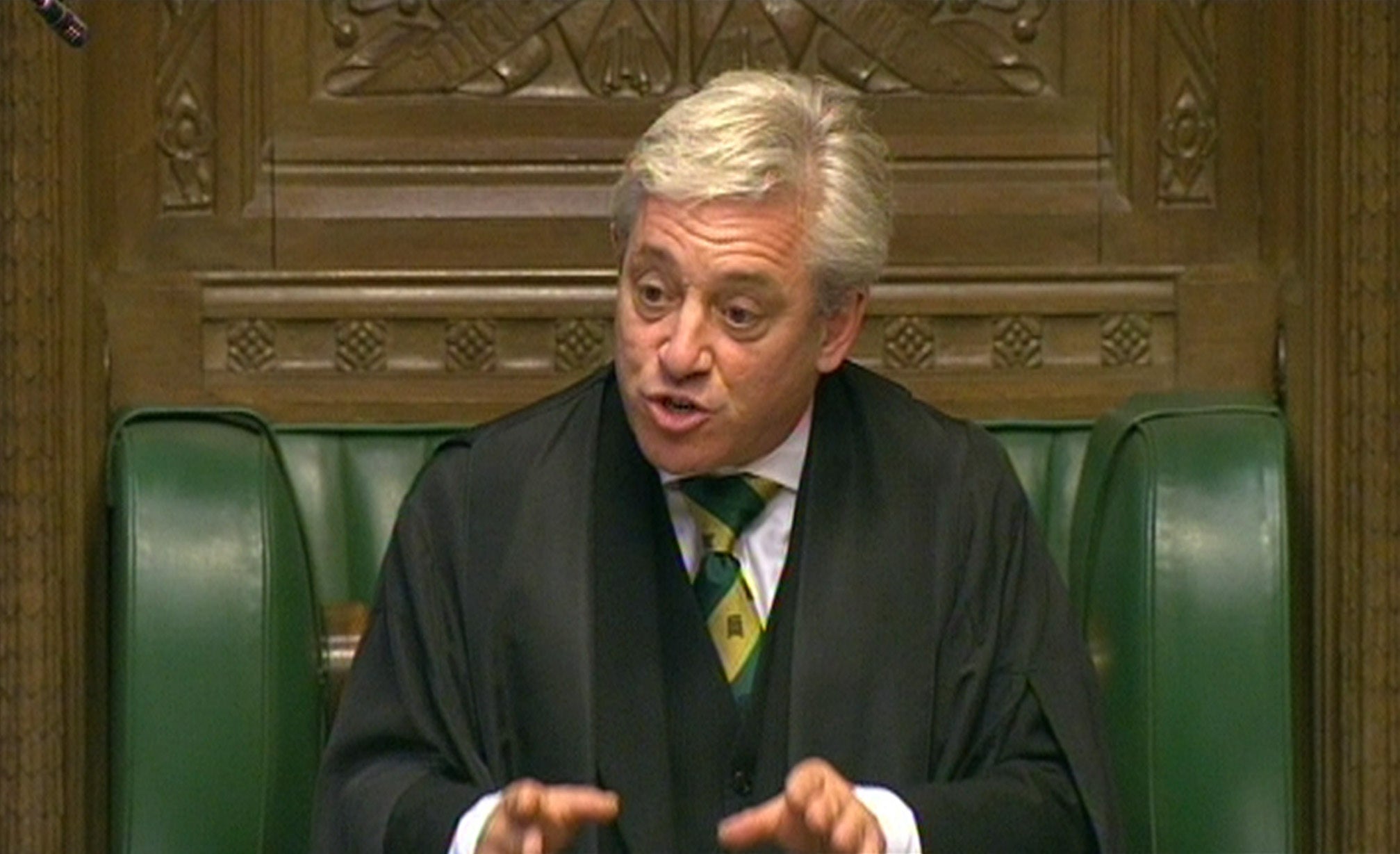John Bercow criticises China as he contrasts with India's 'great democracy'
Speaker of the House of Commons risks controversy by criticising China's lack of democracy
Your support helps us to tell the story
From reproductive rights to climate change to Big Tech, The Independent is on the ground when the story is developing. Whether it's investigating the financials of Elon Musk's pro-Trump PAC or producing our latest documentary, 'The A Word', which shines a light on the American women fighting for reproductive rights, we know how important it is to parse out the facts from the messaging.
At such a critical moment in US history, we need reporters on the ground. Your donation allows us to keep sending journalists to speak to both sides of the story.
The Independent is trusted by Americans across the entire political spectrum. And unlike many other quality news outlets, we choose not to lock Americans out of our reporting and analysis with paywalls. We believe quality journalism should be available to everyone, paid for by those who can afford it.
Your support makes all the difference.John Bercow appeared to criticise China’s lack of democracy in the House of Commons today at the same time as the Queen was welcoming the Chinese President in an unprecedented state visit to the UK.
The Speaker of the Commons intervened during Foreign Office Questions to praise the “great democracy” of India following a comment by an MP who urged the Government offer the same treatment to the India as it is to China.

Mr Bercow said: "And of course the Indian prime minister is the representative of a great democracy,” – a marked criticism of China’s one-party, communist state.
The extraordinary intervention risks undermining the Government’s efforts to put on a charm offensive for President Xi Jinping as he arrived for his four-day stay in the UK– the first state visit from China in 10 years.
The comments from Mr Bercow, who represents the Queen in the House of Commons, could prove embarrassing for Mr Cameron as he attempts to mend relations with the Chinese after they cut off diplomatic ties when he met with the Dalai Lama in 2012.
But it is facing calls from campaigners to raise China’s poor human rights record, the effect of its “steel dumping” on UK job losses and concerns over cyber security.
And news that Prince Charles will miss the state banquet being held at Buckingham Palace on Tuesday evening triggered speculation that he has chosen to boycott the event because of his support for the exiled Tibetan leader the Dalai Lama.
Clarence House has refused to give an official reason for his absence but pointed to his “significant involvement” during President Xi’s four-day state visit.
The Prince, a friend of the exiled Tibetan leader and Camilla Parker-Bowles, the Duchess of Cornwall, hosted the President at a separate private meeting at Clarence House, where he was expected to raise concerns over China’s human rights record.
The absence of the Prince of Wales at Tuesday’s banquet is the latest in a string of snubs to the Chinese.
He boycotted the 2008 Beijing Olympics in Beijing due to his support for Tibet and did not attend the last state banquet laid on for a Chinese President when former leader Hu Jintao visited in 2005.
Likewise in 1999, he did not turn up to a state banquet, in what his former aide Mark Bolland later described as a “deliberate snub”.
And after the handover of Hong Kong to Beijing in 1997 the Prince wrote in a journal that China’s leaders were “appalling old waxworks”.
The Dalai Lama, who has said he and Prince Charles are the “best of friends”, is seen as a separatist threat by China

Join our commenting forum
Join thought-provoking conversations, follow other Independent readers and see their replies
Comments